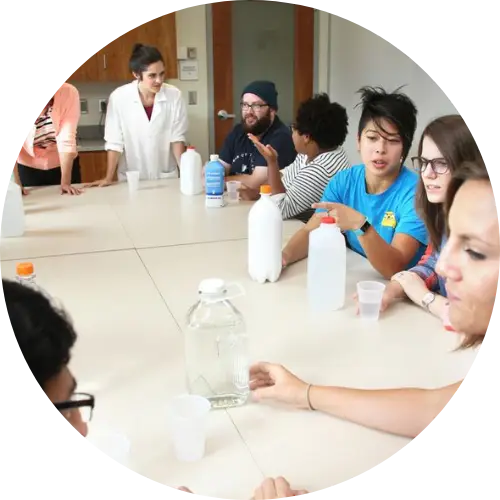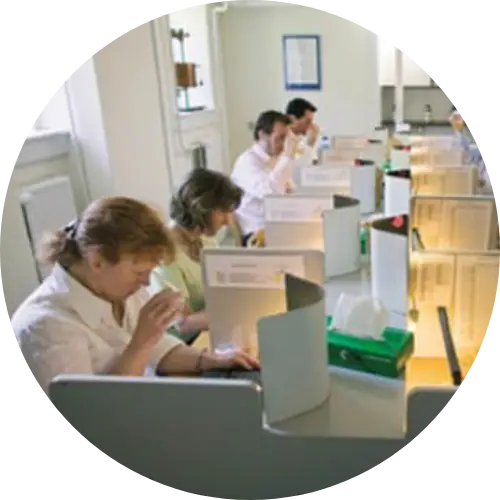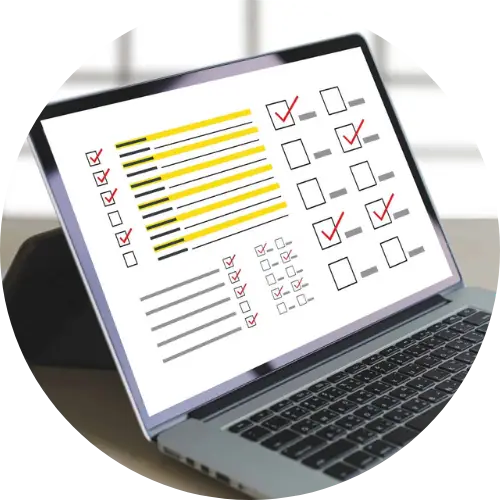Quantitative Research

Transform business questions into data-driven certainty with Virtuo Research’s quantitative methodologies. We combine sophisticated sampling techniques with culturally-adapted measurement instruments to deliver reliable, representative insights across Brazil and Latin America. From face-to-face interviews in remote communities to sophisticated online surveys, we provide robust, actionable data that reduces decision risk, identifies emerging patterns, and measures competitive performance—all tailored to Latin American market dynamics.


Gang Surveys
Virtuo Research Gang surveys are an efficient approach to collect quantitative data from specific groups in a single location. We gather 15-30 participants with similar profiles to simultaneously respond to structured questionnaires, with facilitators available to clarify questions. This methodology offers the ideal balance between efficiency and quality, allowing robust data collection in reduced timeframes and with optimized costs, without compromising information depth or sample representativeness.

Sensory Testing
Our sensory tests apply rigorous scientific methodologies to evaluate how consumers
perceive sensory attributes of products. With specialized facilities in major cities across
Brazil and LATAM, we conduct everything from simple discrimination tests to complex
descriptive and hedonic analyses. Our team of sensory analysis specialists develops
customized protocols for categories such as food, beverages, cosmetics, and personal
care products, providing actionable insights for product development, reformulations,
and competitive positioning.

CATI, CAPI and CAWI
We offer a complete set of computer-assisted data collection methodologies, adapted to the specific needs of each project:
• CATI (Computer-Assisted Telephone Interviewing): Telephone interviews
managed by our specialized contact center, ideal for quickly reaching
geographically dispersed samples.
• CAPI (Computer-Assisted Personal Interviewing): Face-to-face interviews with
tablets or mobile devices, perfect for studies requiring product demonstrations or
visual stimuli.
• CAWI (Computer-Assisted Web Interviewing): Online surveys optimized for
multiple devices, allowing efficient and economical respondent reach.
Our integrated platform ensures methodological consistency and enables hybrid
approaches that maximize sample representativeness in the Latin American context.

Web Surveys
Our web surveys use cutting-edge technology to collect robust quantitative data through online questionnaires optimized for all devices. With access to proprietary panels and strategic partnerships throughout Brazil and Latin America, we guarantee representative samples even for specific or hard-to-reach segments. Our platform offers advanced features such as automatic randomization, complex questionnaire logic, multimedia stimuli incorporation, and interactive tools that increase respondent engagement and data quality.

Home Usage Test (HUT)
Our Home Usage Test (HUT) allows consumers to evaluate products in their natural environment, generating authentic insights about usage experience, satisfaction, and purchase intention. We manage the entire logistical process of distribution and collection across multiple Latin American markets, combining structured quantitative evaluations with qualitative feedback for a complete understanding of product performance. This methodology is ideal for concept testing, pre-launch evaluations, and competitive comparisons in categories such as food, cleaning products, personal care, and small appliances.
